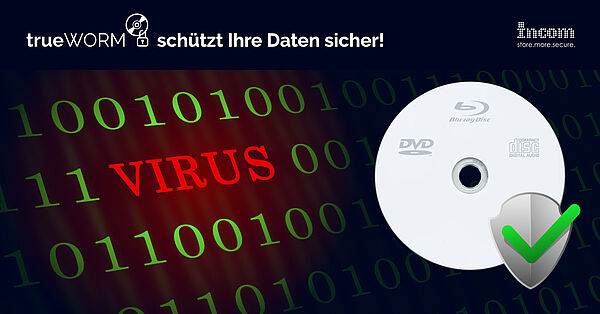As can currently be seen from the press releases around the university hospital in Düsseldorf or Schmersal in Wuppertal, large data centers and cloud service providers are not one hundred percent protected against external intervention. Once the data has been encrypted by ransomware and thus taken hostage, the prospects of being able to access the data again quickly are poor. Often only a complete restore of all information from the backup is helpful, as long as the data has not been corrupted.
What can cost lives in a university hospital, for example, if planned operations cannot be carried out due to missing data, can be ruinous for other companies in case of a longer breakdown. As soon as employees no longer have access to important data, supply chains are interrupted and machines are at a standstill, sales plummet and until data sovereignty is restored, it can be a hard and rocky road.
Due to their physical immutability, optical data carriers offer an unbeatable advantage here, because the data stored and archived on them cannot be changed by viruses or ransomware and offer double security, because even in the unlikely event that the entire archive is not accessible, every single medium could be removed from the system and read in any standard Blu-ray drive.
Due to the extremely long lifetime of the data media of 100 years and more, the technology offers incomparably low migration costs and also outshines all competitive technologies in terms of power consumption. While hard disks in storage systems consume energy in a permanently rotating manner and thus generate heat, which in turn has to be cooled down in the data centers, an optical storage system in idle mode consumes only a few watts even in the petabyte range and does not consume much more even in productive mode.
